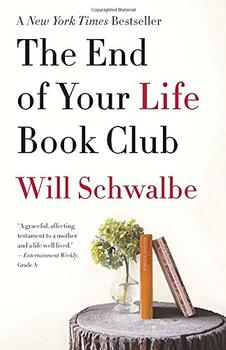Summary | Excerpt | Reading Guide | Discuss | Reviews | Beyond the Book | Readalikes | Genres & Themes | Author Bio

We always insisted that Mom see doctors - and she did: her GP, and various tropical disease experts, and occasionally other specialists. But except for a frightening bout with breast cancer that was detected early enough that surgery sufficed and no chemotherapy was required, and a gallbladder that needed to be removed, she'd never had anything else seriously wrong with her. The assumption was always that there was nothing the matter with Mom that couldn't be cured if only she would slow down.
Which she wouldn't.
We all also believed that if Mom would just once take a full course of antibiotics, she would rid herself forever of all her travel-related ailments. I don't know if it was thrift or stubbornness or distrust of medicines, but after consuming half the prescription, she would save the rest for later, which was maddening. Even reminding her that she might be creating a superbug didn't have much effect.
The summer of 2007, however, Mom stayed sick. Fairly quickly, every doctor and specialist confirmed what she had: hepatitis. She was turning yellow; the whites of her eyes were the color of organic egg yolks - not the pale yellow of supermarket eggs, but blood-tinged gold. She was losing weight and had no appetite. And it was fairly obvious where she'd contracted the hepatitis, since she'd just come back from Afghanistan. Something she ate, perhaps. Or some shower water getting in her mouth. But the doctors at first couldn't figure out what type of hepatitis it was. Not A, not B, not C - not even D. They thought that it might, perhaps, be the very rare hepatitis E. Still, even the fact that no one was completely sure what strain Mom had wasn't much of a worry. If we couldn't understand Afghanistan's complicated political and religious situation, did we really expect to have identified every weird virus and disease you could pick up there?
Her doctors were not incautious - early on, they did tests to rule out other things and felt pretty confident that they had ruled them out. They provided some recommendations: she would need to rest and also not drink any alcohol (for her not a big deal, although she did like a glass of wine with dinner, and champagne at celebrations). That was all.
The summer progressed, however, with Mom getting progressively sicker. She was tired. And she was aggravated to be tired, and to have hepatitis, and not to be feeling herself. She didn't complain, but to those closest to her, she occasionally noted it. Now that I think back, every mention she made of her hepatitis sounds ominous. She would occasionally say to my father or to one of us something like "I don't know why they can't figure out what's wrong with me." Or "I rest and rest and never feel rested." Nevertheless, she pushed herself to do just about everything she wanted to do.
Did she ever really rest? It was difficult to say. For her, a "lazy" day was one devoted to catching up on email or "attacking" her desk (always the word she used, as though it were a paper-spewing monster that needed to be fought lest it take over and destroy everything in its path). Only when she was reading was she truly still.
Watching Mom struggle to keep up with the demands of her life caused tension to build in the rest of the family. We couldn't get mad at her for not feeling well and for refusing to relax, so we got far more annoyed at one another than we usually did for all sorts of little crimes: being early, being late, forgetting a birthday, making a sarcastic comment, buying the wrong flavor of ice cream. We tried to keep Mom from overhearing these squabbles but didn't always succeed. She was usually able to solve them, dismiss them, or referee them - which made the combatants feel guilty for having quarreled at all.
This summer was a busy one, and neither Mom nor I was able to read the way we liked to during summers - that is, most of the day, day after day, indoors and outside, at home or at the vacation houses of friends—so we tended toward short books. I read On Chesil Beach by Ian McEwan, which even a slow reader can start and finish in an afternoon. Mom had it on her list of books to read and asked me what I thought.
Excerpted from The End of Your Life Book Club by Will Schwalbe. Copyright © 2012 by Will Schwalbe. Excerpted by permission of Knopf. All rights reserved. No part of this excerpt may be reproduced or reprinted without permission in writing from the publisher.
Your guide toexceptional books
BookBrowse seeks out and recommends the best in contemporary fiction and nonfiction—books that not only engage and entertain but also deepen our understanding of ourselves and the world around us.